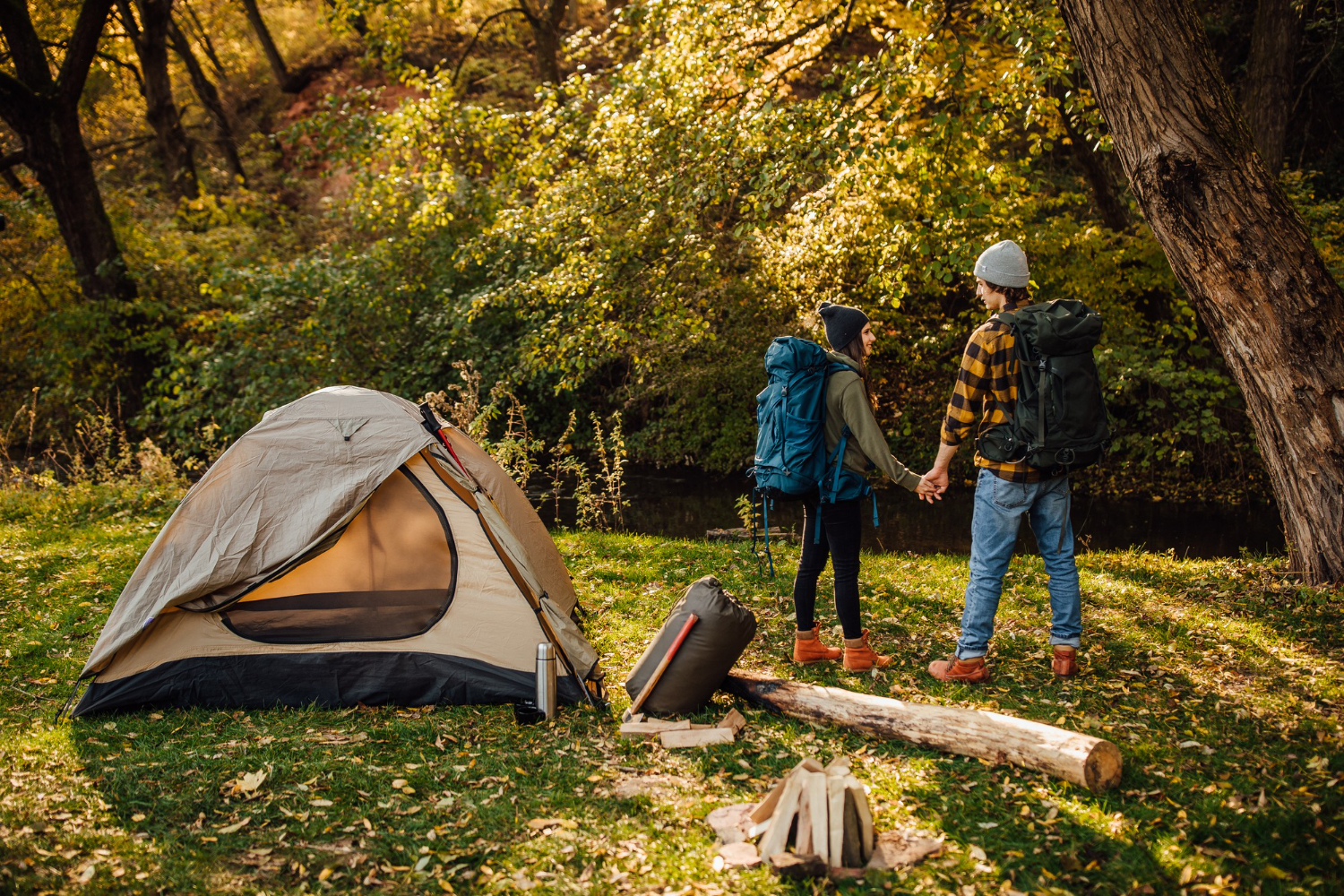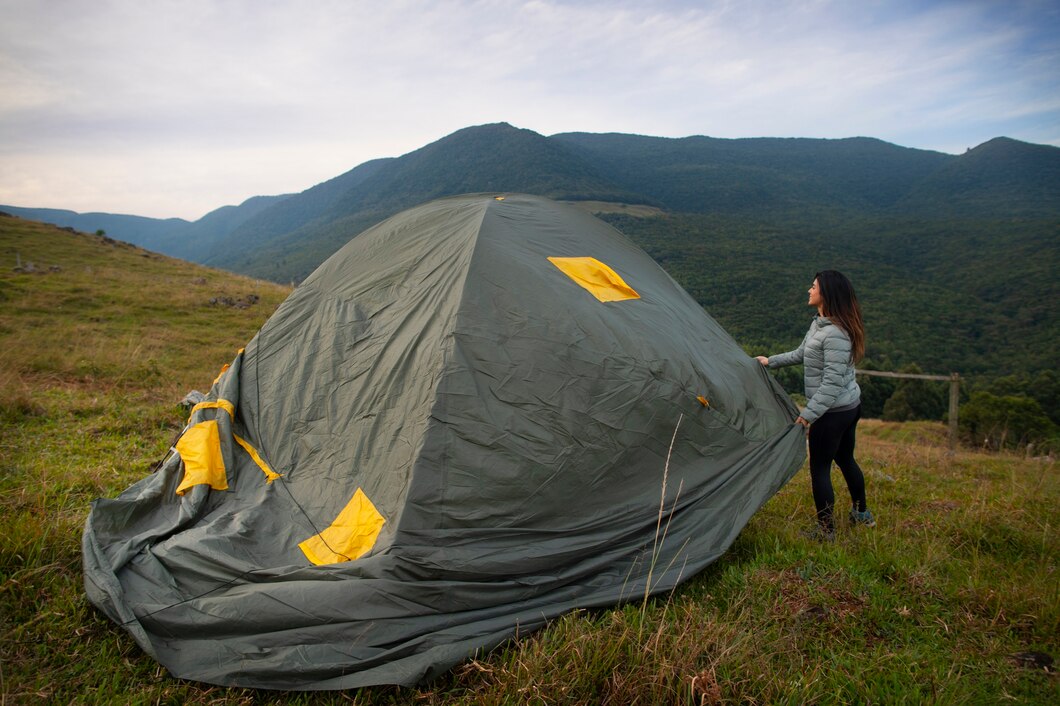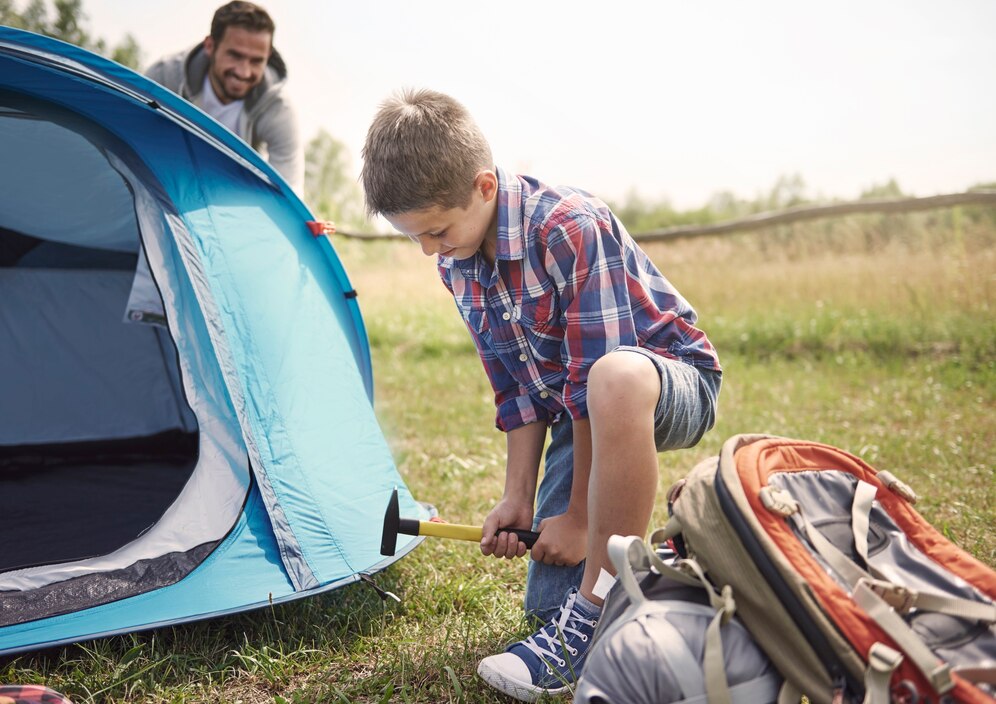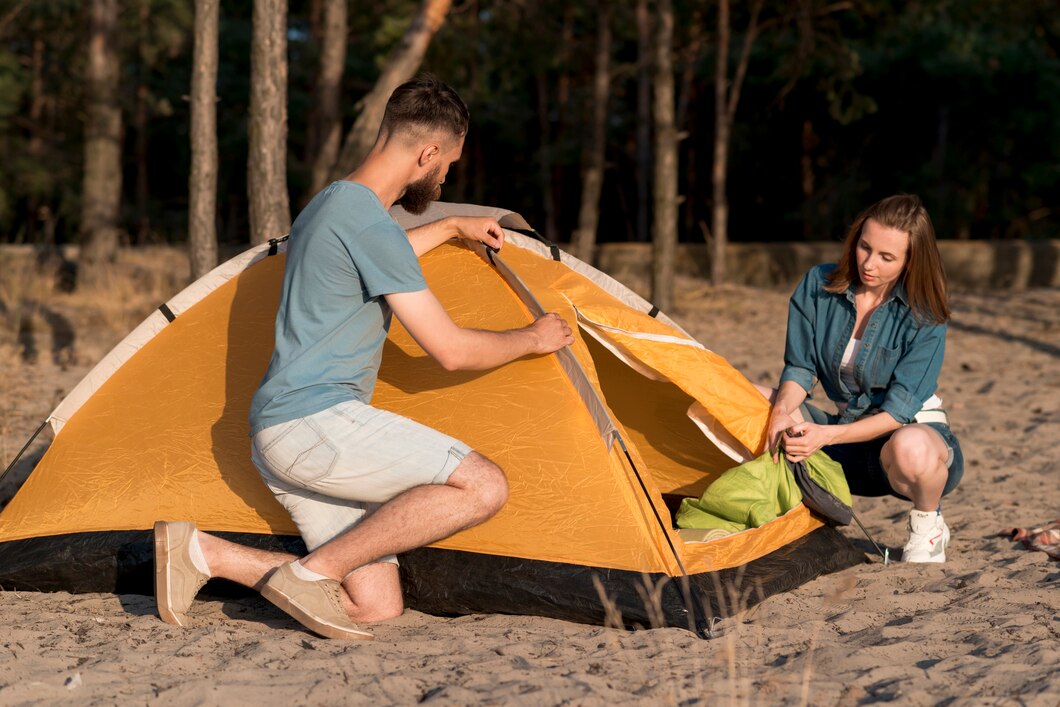
Surviving the Wild: Camping for Beginners
Camping is an awesome way to reconnect with nature, unwind from daily stress, and develop essential outdoor skills. If you’re planning a weekend getaway, it’s the perfect activity. But, if you’re new to camping, proper preparation is key to ensuring a safe and enjoyable trip. This wilderness survival guide includes beginner camping tips and the gear you need for your first adventure.
1. Choosing the Right Campsite
Selecting the perfect campsite is the foundation of a great camping experience. Your choice of location matters for your comfort and safety. Whether you like a national park, a remote wilderness area, or a camping site, each offers a different experience.
Factors to Consider When Choosing a Campsite:
- Accessibility: Make sure the site is easy to reach by car or hiking, based on what you like.
- Terrain: Look for flat, dry ground for pitching your tent.
- Water Source: Proximity to fresh water is important for drinking and cooking.
- Wildlife Awareness: Research local wildlife to prepare for any encounters.
- Safety & Regulations: Check if the area requires permits or has any restrictions.
Different Types of Campsites:
- Established Campgrounds: They have designated pitches, toilets, and sometimes electricity.
- Backcountry Camping: Requires hiking to remote locations, which offer solitude and adventure.
- Wild Camping: Allowed in certain areas of the UK, such as Scotland, with rules to follow.
Pro Tip:
Check the weather before you go. Stay away from places that may flood or have strong winds.
2. Essential Camping Gear Checklist

Packing the right gear is crucial for staying safe and comfortable outdoors. Here’s a breakdown of essential camping gear that every beginner should have.
Shelter & Sleeping Gear:
- Tent: Waterproof and suitable for the climate.
- Sleeping Bag: Insulated for the season.
- Sleeping Pad or Air Mattress: Provides comfort and insulation from the ground.
- Pillow: A compact, travel-friendly option.
- Tarp or Groundsheet: Protects against moisture and adds durability to your tent floor.
Cooking & Food Essentials:
- Camping Stove or Portable Grill: Essential for cooking meals.
- Lightweight Cookware: A pot, pan, and utensils.
- Reusable Water Bottle & Purifier: For safe drinking water.
- Non-Perishable Foods: Canned goods, protein bars, and dry snacks.
- Cooler & Ice Packs: To keep perishables fresh.
- Firewood or Fuel: If fires are permitted, carry dry wood or fuel for cooking.
Navigation & Safety Gear:
- Map & Compass: Crucial for navigation in remote areas.
- First-Aid Kit: Bandages, antiseptic wipes, and basic medication.
- Multi-Tool or Knife: Useful for cutting rope, preparing food, and repairs.
- Fire Starter: Waterproof matches or a lighter.
- Torch & Extra Batteries: Essential for nighttime visibility.
- Whistle: A safety measure in case you get lost.
- Emergency Blanket: Lightweight and retains body heat in cold conditions.
Clothing & Personal Items:
- Moisture-Wicking Base Layers: Helps regulate body temperature.
- Waterproof Jacket: Protection against rain and wind.
- Hiking Boots: Sturdy and comfortable for rough terrain.
- Hat & Gloves: Essential for cold weather camping.
- Bug Spray & Sunscreen: Protection against insects and sunburn
- Extra Socks & Underwear: Staying dry is key to comfort.
Pro Tip:
Pack light but ensure you have all the essentials for comfort and safety.
3. Setting Up Camp Like a Pro

After arriving at your campsite, proper setup can significantly enhance your comfort and safety.
Steps to Setting Up Camp:
- Choose a flat, dry spot for your tent.
- Clear debris like rocks and sticks before pitching your tent.
- Keep your cooking area away from your sleeping area to prevent attracting wildlife.
- Secure your food in bear-proof containers or hang it from a tree if you’re camping in bear country.
- Check your surroundings for potential hazards, like falling branches or uneven ground.
Pro Tip:
Set up camp before sunset to ensure you have enough light to work with.
4. Campfire Safety & Cooking Tips
A campfire can provide warmth, light, and a way to cook food, but it must be handled safely.
Building a safe campfire:
- Use designated fire pits if they are available.
- Keep your fire small and manageable.
- Never leave the fire unattended.
- Completely extinguish it before going to sleep or leaving camp.
Easy Campfire Cooking Tips:
- Bring pre-marinated meats and foil-wrapped meals for easy cooking.
- Use cast iron skillets for durable, even heating.
- Try one-pot meals like stews or pasta to save time and reduce clean-up.
Pro Tip:
Check fire rules where you camp. Some places may ban fires because it’s dry.
5. Staying Safe in the Wilderness
Safety is a top priority when camping. Following these wilderness survival guide tips will help keep you prepared.
Wildlife Precautions:
- Store food in sealed containers to prevent attracting animals.
- Maintain a safe distance from wild animals and never feed them.
- Carry bear spray in areas with large predators.
Weather Preparedness:
- Layer your clothing to adapt to changing temperatures.
- Be prepared for rain with waterproof gear.
- Know the signs of hypothermia and heat exhaustion.
Emergency Preparedness:
- Carry a fully charged phone or satellite device.
- Share your camping itinerary with someone you trust.
- Have an emergency exit plan in case of extreme weather or injury.
Pro Tip:
Learn basic first aid skills before your trip to handle minor injuries.
6. Leave No Trace: Being responsible while camping

Respecting nature ensures that future generations can enjoy the great outdoors just as we do.
How to Minimise Your Impact:
- Pack out all rubbish, including food scraps.
- Stick to marked trails to protect fragile ecosystems.
- Use biodegradable soap for washing.
- Respect quiet hours and keep noise levels low.
Pro Tip:
Leave your campsite cleaner than you found it to promote responsible camping.
Let’s wrap up: Get Ready for Your First Camping Trip
Camping is an experience that allows you to disconnect from the modern world and immerse yourself in nature. Use these beginner camping tips, essential gear, and this survival guide. You’ll be ready for a safe and fun outdoor adventure.
Are you planning your first camping trip? Share your questions or experiences in the comments below!


